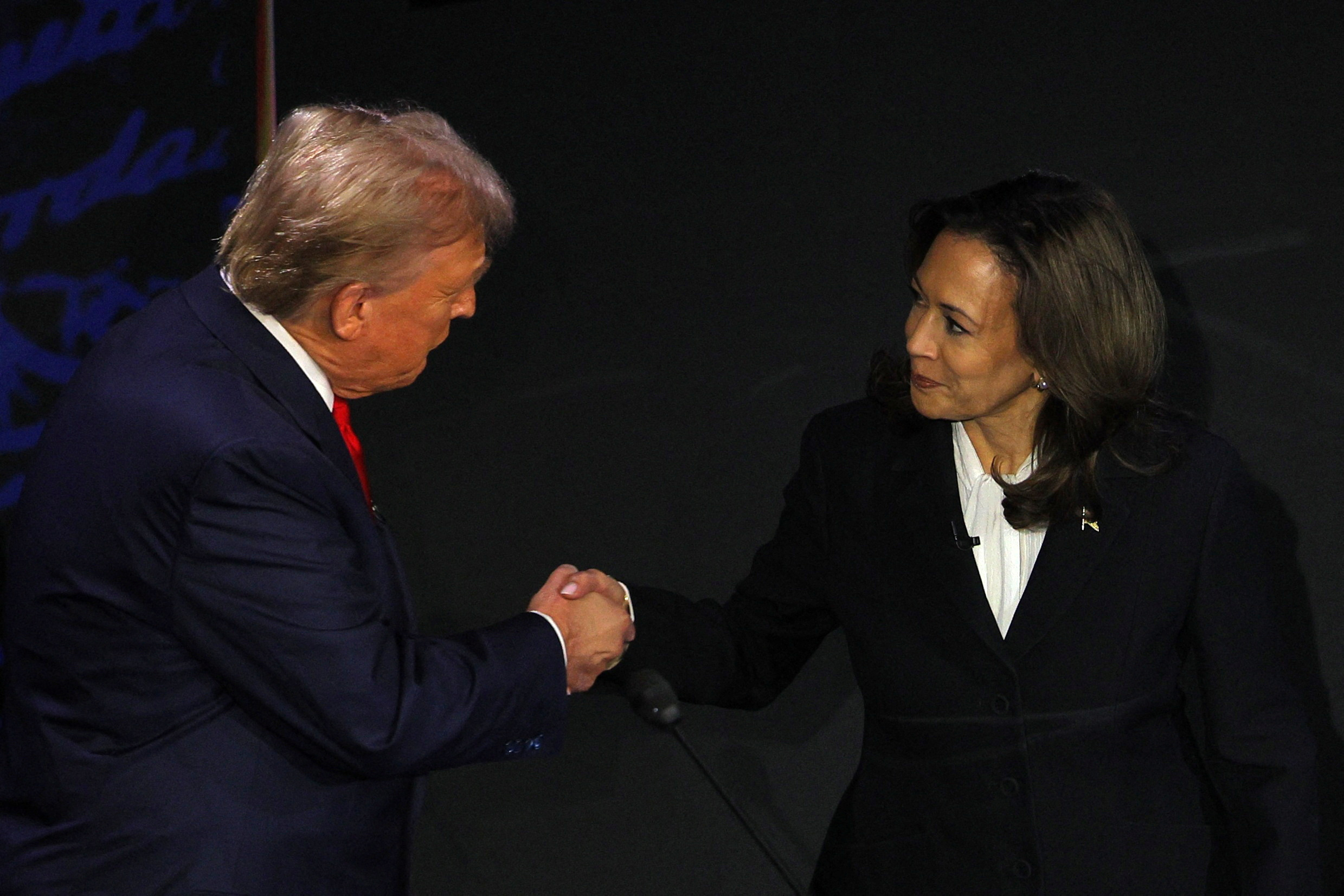There is no reason to suppose that Putin is bluffing
Before saying anything about the Great Debate in the US last week between the best-looking old man Donald Trump and the best-looking fifty-something woman, a few words about the way Americans elect their president and commander in chief.
The way the system works in the US is that all 50 states and the District of Colombia are allocated a number of electors equal to the number of legislators they send to Congress. These electors are expected to support the candidate for US president who wins in their state on election day and certify the result accordingly.
On election day the presidential candidate with the most votes in each state wins all the electors allocated to that state. The result is then certified by the state secretary as correct and sent to the US senate president – the US vice president – for the results from all states to be totted-up when the candidate with the most votes is formally declared president by a joint session of Congress. Trump is facing criminal charges for seeking to disrupt this process on January 6, 2021 while he was president, but for sound democratic reasons the American constitution does not bar him from standing again.
What the founding fathers intended was that it was the states not Congress that elected the president because they wanted to entrench the federalist nature of the US constitution. This can result in a candidate being elected president even though he or she does not get the majority of votes in the US and even though the result is determined by a few hundred thousand voters in a limited number of swing states.
The founding fathers had a love-hate relationship with the English monarchy, on which the office of the US president was modelled but without its dynastic attributes. Importantly, it did not exclude women – Elizabeth I and Queen Anne were both women – and although the American Constitution always uses masculine pronouns when referring to the president, the eligibility to be elected president provision is in the gender neutral “no person except a natural born citizen… shall be eligible to the office of president; neither shall a person be eligible to that office who shall not have attained the age of thirty five years and been fourteen years resident in the US.”
One of the problems of having bad losers like Trump running for president, however, is that if they lose it is not in their nature to accept the result and go quietly. In 2016, Trump won against Hilary Clinton so he accepted the result, but if he loses against Kamala Harris he is likely to challenge the result and it is not beyond him to argue that as the American constitution refers to the president using masculine pronouns there is no positive provision enabling a woman to be president.
Debates between presidential candidates are hard to judge except the one between Donald Trump and Joe Biden last June: Trump won it hands down. Biden was incoherent and obviously unfit to be president. As this column has said before, he should have resigned as president as well as candidate for president.
For the rest of the world the most important issue in current US presidential debates is the war in Ukraine because it is gradually slipping out of control and none of the present world leaders are up to the enormity of the task ahead if the slippage is not contained and reversed.
As I type, an inexperienced British Labour prime minister and a senile American president are discussing whether to authorise the Ukrainians’ use of western long-range missiles against Russia – the most powerful nuclear power in the world. Russian President Vladimir Putin has warned that this would involve “direct participation” of Nato in the war in Ukraine as it “would mean that Nato countries, the USA and European countries are fighting with Russia” because their servicemen would “input flight missions into these missile systems,” he claimed.
There is no reason to suppose that Putin is bluffing that authorising the use of long-range missiles against Russia would elevate the phoney war between the West and Russia to a new level. No Nato country except the US has engaged with its people about the crisis between the West and Russia, least of all in the UK where the war in Ukraine did not feature at all in the July election as the parties were on the same page over Russia’s role.
The position in the US is different. Last week, Trump made it clear in the debate with Harris that he would end the war even before he assumes office and refused to be drawn on whether he wanted Ukraine to win: “that war was dying to be settled. We are playing with World War III,” he warned. His position is clear and coherent: vital American interests are not engaged in Ukraine.
In the end, it looks as though Biden refused to be dragged into a direct confrontation with Russia as he knows that authorising the use of long-range missiles armed with US target technology against it would enhance Trump’s chances of winning against Harris enormously.
As a decision to authorise could lose her the election, Harris should be involved in all the decision-making on the war in Ukraine.
Alper Ali Riza is a king’s counsel in the UK and a retired part time judge







Click here to change your cookie preferences